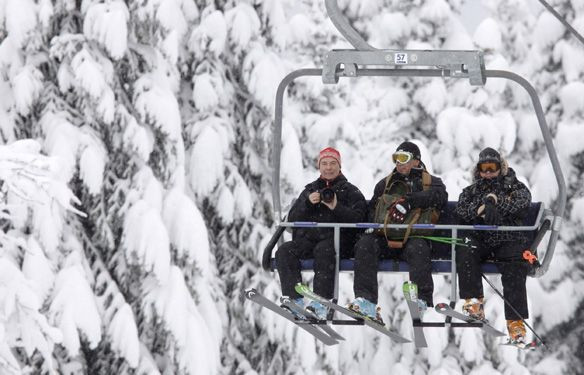Boston Bombings Could Heighten Already Tight Sochi Security

The Boston Marathon bombings, which killed three and injured more than 180, are expected to have a trickling effect on safety concerns for international sports.
With Boston police having identified Tamerlan Tsarnaev as the dead bombing suspect, and a manhunt under way for Tamerlan's brother, Dzhokhar Tsarnaev, the suspects’ Chechen-born status may impact the level of security measures for the 2014 Winter Olympics in Sochi, Russia.
Znamenskoye, the northeasternmost major city in Chechnya, is located about 270 miles from Sochi, and Chechnya has been involved in two unsuccessful wars for independence from Russia. The Second Chechen War ended in May 2000, but an insurgency phase extended to 2009.
Chechnya, a nation of 1.3 million people with a predominantly Sunni Muslim population, has been mired in domestic conflict for several years. Roughly two-thirds of the Chechen population were unemployed in 2006, but the unemployment rate was at a still-distressing level of 29.81 percent in 2012, according to unemploymentinrussia.com.
On Friday, a former State Department representative posted on Twitter: "If the two #Boston suspects were from #Chechnya, the next question is who sent them (if anyone) and beyond killing people, what agenda?"
There has been no reported link of the Tsarnaev brothers to a terrorist organization, and their motivation remains unclear. John Kerry, a former U.S. senator from Massachusetts and the current secretary of state, declined to address the Tsarnaev brothers’ ties to Chechen extremists Friday.
“I’m not going to get into speculation,” Kerry said. “I’m not going to deal with a hypothetical. Let’s wait and see what the FBI details at the appropriate time.”
The subject of terrorism is likely to feature prominently in media accounts, and it has already been addressed by the Russian press. Komsomolskaya Pravda, a Moscow-based publication, posted a statement by a representative of the head of Chechnya that “almost nothing is known of the Tsarnaev family” in Chechnya.
Prior to the Boston bombings, there had been reports of possible danger surrounding the Sochi Games. The New York Times offered a rather ominous headline in March 2011: “Sochi Olympic Security Raises Concerns for Russia.” The CBC was even less diplomatic in February 2010: “Will the next Winter Games be in a war zone?”
Independent of the bombings in Boston, the Olympics have long been considered a target for terrorism. American extremist Eric Robert Rudolph pleaded guilty to the Centennial Olympic Park bombing that killed one person and injured 111 during the Atlanta 1996 Olympic Games. During the Munich 1972 Olympic Games, 11 members of the Israeli Olympic team were first taken hostage and then killed by a Palestinian terrorist group.
Such past incidents have prompted Olympic officials to strengthen security in recent years. Gian Franco Kasper, president of the international ski federation FIS, addressed how the security has been extremely tight in an interview with the Associated Press.
“I joked that the only moment they didn't inspect our athletes was during the race,” Kasper said. “We can be relatively safe with all the controls. I am not worried about it.”
Kasper described the Olympics as “the most secure place you can find.”
“At no point did I not feel safe,” American sled pusher Katie Eberling told the Chicago Tribune about her two trips to Sochi. “There was a huge security presence. It was ten-fold what we see at the World Cup races and the world championships.”
© Copyright IBTimes 2024. All rights reserved.






















